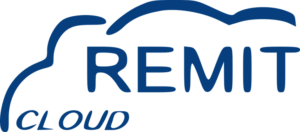New REMIT 2 Implementing Regulation
EU Tightens Market Transparency: New REMIT Implementing Regulation Covers LNG, Hydrogen and Expands Reporting
The European Commission has unveiled a new Implementing Regulation under REMIT (Regulation on Wholesale Energy Market Integrity and Transparency), replacing the existing Implementing Regulation (EU) No 1348/2014 after a 12-month transition. The reform aims to close loopholes, simplify procedures, and extend coverage to new energy markets such as LNG and hydrogen.
More markets, more data
For the first time, liquefied natural gas (LNG) — and from 2028 also hydrogen — will fall under REMIT reporting obligations. Market participants will also have to provide exposure reports: forward-looking forecasts of generation, consumption, and hedging strategies over a 24-month horizon. ACER, the EU’s energy regulator, expects these reports to strengthen its ability to monitor for market abuse.
From real-time to periodic
The regulation now distinguishes two types of reporting:
-
Continuous (D+2): e.g. exchange-traded contracts on Organised Market Places (OMPs).
-
Periodic (semi-annual or annual): for large OTC supply contracts above 600 GWh, storage and balancing services, capacity mechanisms, and hydrogen contracts.
For OTC deals, companies will have up to 10 working days to file reports — a notable change from continuous reporting under the old regime.
Expanded data tables
The technical annexes see major expansion:
-
Table 1 (standard contracts) grows from 58 to 89 fields, including many LNG-specific entries.
-
Table 2 now captures power purchase agreements (PPAs).
-
Tables 3 and 4 (electricity and gas transportation) add fields on capacity auctions and allocation mechanisms.
-
Table 5 is entirely new, covering trade-matching systems such as the Single Day-Ahead Coupling (SIDC).
New responsibility chain
All transactional and fundamental data must be routed through Registered Reporting Mechanisms (RRMs), while inside information disclosures will pass through newly designated Inside Information Platforms (IIPs). Both RRMs and IIPs are explicitly liable for ensuring the completeness, accuracy, and timeliness of reporting.
Industry impact
-
Trading venues (OMPs): required to deliver more detailed order and matching data.
-
Storage and LNG operators: now solely responsible for reporting, ending duplicate submissions by market participants.
-
Large suppliers and consumers: benefit from reduced OTC reporting frequency but face the new burden of exposure reporting.
-
Regulators: gain access to a broader and higher-quality dataset, reducing blind spots in market surveillance.
